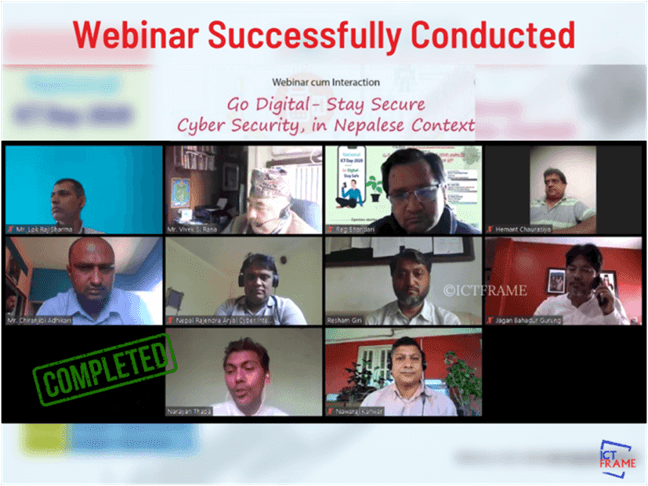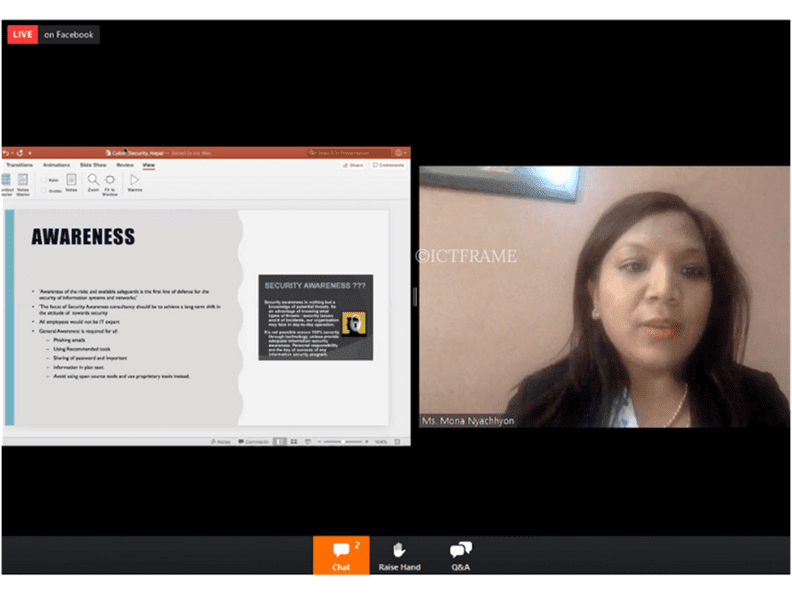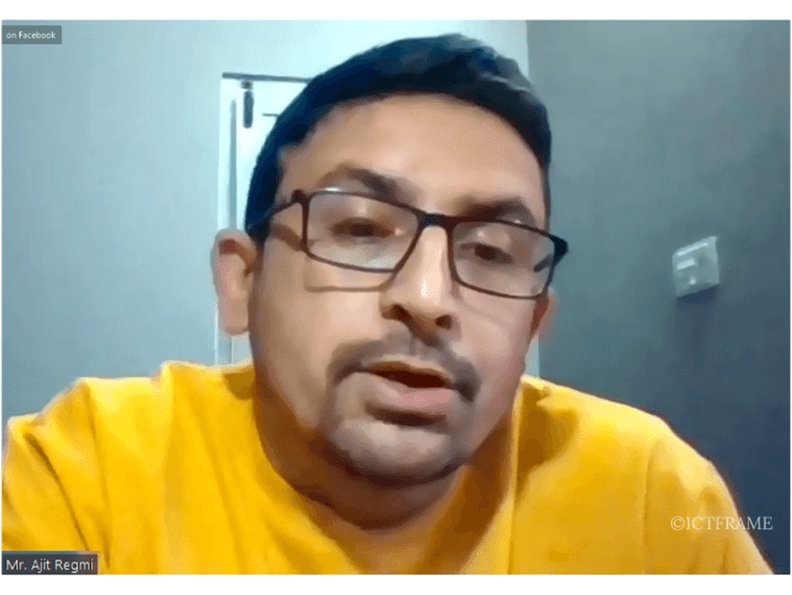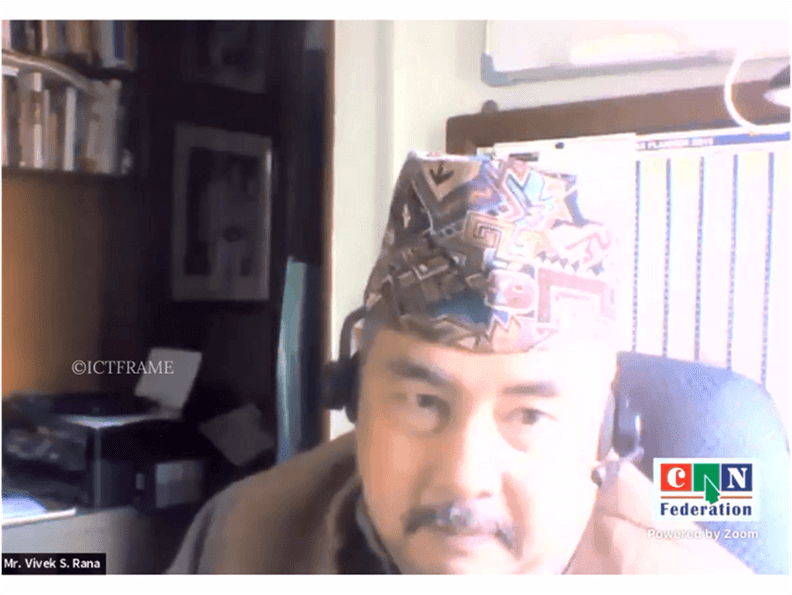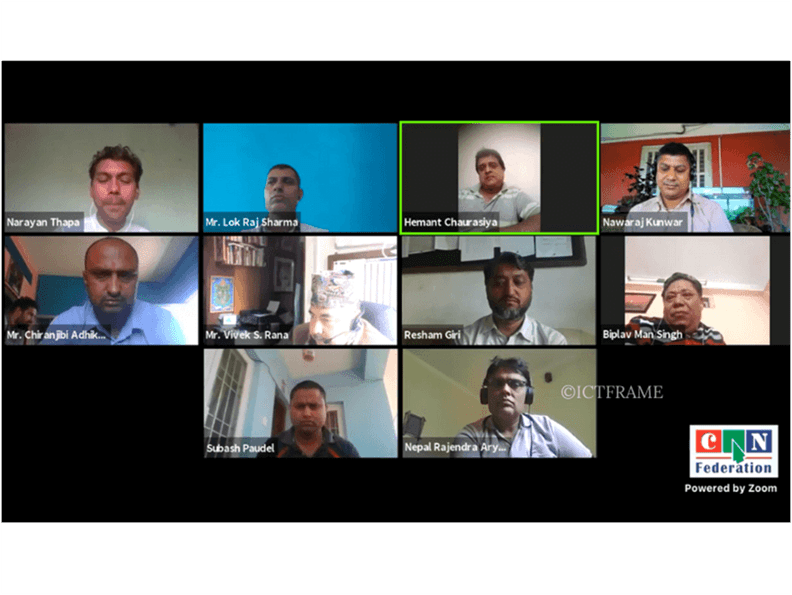Successfully Conducted Webinar on Cyber Security in Nepalese Context
May 8th, 2020, Kathmandu
This year’s National ICT Day 2020 on May 2 marked the third official ICT day since its endorsement by the government. Normally, the ICT day celebration lasts a week-long with seminars, rallies, workshops, and other events. However, the National ICT Day 2020 is not being celebrated under normal circumstances.
Due to the COVID-19 pandemic, the government canceled all events that involved physical participation. But, the ICT sector has its own way to fulfill the purpose of marking the ICT day, which mainly is to raise ICT awareness.
Click here to see the weekly program schedule of National ICT Day 2020.
On May 8, Federation of Computer Association Nepal (CAN) successfully conducted a webinar cum interaction on Cyber Security, in Nepalese Context.
Event Detail
Program Theme: Cyber Security, in Nepalese Context
“Go Digital – Stay Secure”
Hosted by: CAN Federation
Date & Time: May 8, 2020 (11 AM – 12:30 PM)
Speakers:
- Lokraj Sharma, Director, Department of Information Technology
- Vivek S. Rana, Principal Consultant, InfoAssure LLP
- Ajit Regmi, Deputy Director, Nepal Rastra Bank
- Mona Nyachhyon, Director for Software Development, LogPoint
Moderator: Mr. Chiranjibi Adhikari, Secretary, CAN Federation
The Moderator for the event, Mr. Chiranjibi Adhikari, is also the co-founder of ICT Frame. It is an online magazine in Nepal that provides ICT related news in English and Nepali languages.
The webinar addressed the security challenges in the digital world and how to move forward towards security. The speakers talked about organization level initiatives and how to raise risk awareness to motivate the next generation toward the cyber world.
Presentations from the Panelists
Mona Nyachhyon – Director for Software Development, LogPoint
Ms. Mona Nyachhyon started her presentation by addressing the inevitability of the internet. All of our personal information is in the cloud and we should never be in the misconception that our security can’t be compromised. She also focused on Cyber Resilience as cybercriminals are always ahead of the system.
The first step towards security is to acknowledge that our security is breachable. According to her, awareness is the first line of defense and people need to change their attitude towards security. Furthermore, she feels that collaboration is the key to prepare for cyberattacks and respond to them immediately.
Ajit Regmi – Deputy Director, Nepal Rastra Bank
Similarly, Ajit Regmi addressed how to work safely from home. He says that email phishing and scams have increased during the pandemic. In fact, these malicious links or attachments can lead to a breach of our credentials. So, we need to beware of such malicious links.
Hackers are more active during a crisis by exploiting our vulnerabilities so raising awareness needs to be a priority. He believes that upgrading our manpower skills will help tackle such cyber threats without seeking outsourcing solutions.
Here are a few points by Mr. Regmi on how to work safely from home:
- Training staff or employees on the basic practices of cybersecurity
- Sharing information through intranet or private group
- Using strong passwords and two-factor authentication
- Securing the terminals and using separate account/device if possible
- Encrypting device and updating software/applications
- Checking the authenticity of access to transactions and other sensitive data
- Implementing and checking the backup system
You May Also Like: Tech Mistakes To Avoid | How To Work From Home Responsibly
Lok Raj Sharma – Director, Department of Information Technology (DoIT)
He starts his presentation by highlighting the need for awareness locally and nationally. Also, people are spreading misinformation without confirming the source which creates unnecessary panic. After the lockdown, it has been forecasted that mobile app and technology will see a drastic rise in the market.
He believes that the government alone can’t move forward with the initiative without the support of public and private organizations working in cybersecurity. As for the government initiative, preparation to develop a government data center cloud for online collaboration is in process. It is to avoid the dependency on foreign products and centralize the data within the country.
Proper guidelines and policies are in the making to strengthen the cybersecurity in Nepal. Mr. Sharma believes that private organizations and entrepreneurs can initiate the change while the government will be responsible to approve and support the movement.
You May Also Like: Dedicated Cybersecurity Company From Nepal
Vivek S. Rana – Principal Consultant, InfoAssure LLP
Vivek Rana is a cybersecurity expert having knowledge of international cybersecurity practices as well. He believes that citizens of Nepal are more vulnerable to security risks than the government or private organizations.
Security and privacy are the two sides of the same coin. “Security is a process, the outcome is privacy,” he says. He mentioned that we normally talk about data privacy when we should be prioritizing all 7 layers of security.
Going forward, the government should take a lead in a systematic way and implement a multistakeholder approach to collaborate with the related organizations. Also, third-party risk assessment plays a vital role in protecting the privacy of the organization.
He adds, “The best investment one can make is training the staff and citizens rather than investing in expensive equipment or products.”
For full webinar video, click here
Previous Events
2nd May: Go Digital – Go Cashless
4th May: Go Digital – Digital Learning
6th May: Go Digital – Working Online
Upcoming Event
10th May: Go Digital – e-health


